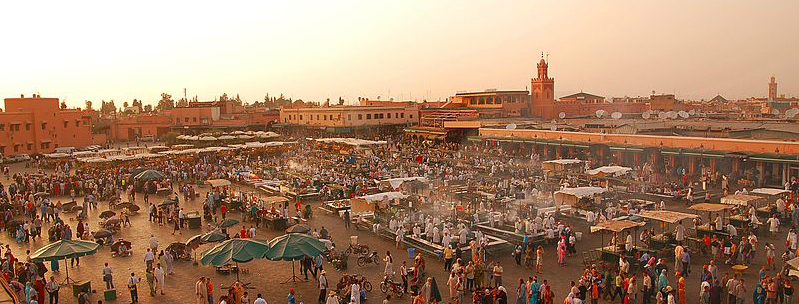Regionalisation in Morocco, a process in the service of the territory’s sustainable development

Abdélkebir Berkia
President of the Rabat-Salé-Zemmour-Zaer Regional Council
The trend towards decentralisation is a continuous motion that can currently be perceived all over the world; although, of course, the degree of decentralisation varies from country to country.
Since its independence in 1956, Morocco started a progressive decentralisation process, a long-term project initiated by His Late Majesty King Hassan II and continued successfully by His Majesty King Mohammed VI, which for the Kingdom represents an irreversible strategic choice. Local authorities include regions, prefectures and provinces, and, at the base, rural and urban communes.
Over time, this process has made a lot of progress, to the point where we can say that decentralisation in Morocco has reached the stage of maturity. After reaping the benefits of municipal, prefectural and provincial decentralisation, Morocco has opted for the region as the right framework to improve the institutional structure of the Kingdom.
Following the experience from the 7 economic regions created pursuant to a 1971 law, by which regions were just a consultative assembly in the field of economic and land-use planning, with no legal personality and no financial autonomy, and after two subsequent constitutional reviews in 1992 and 1996, regions, which had suffered for a long time from a lack of identity, were promoted to Local Authorities, invested with legal personality and financial autonomy.
In 1997, 16 regions were created. With the aim of tackling the development challenges, the 47/96 Act, passed in 1997, granted more powers to the regions: their own, transferred by the State and consultative, giving them the means to promote economic, social, cultural and environmental development, in partnership with the State and the other territorial authorities.
The creation of the region allows placing the potential capacities of deconcentration at the service of regionalisation. Unlike communes, prefectures and provinces, regions are less of a territorial administration authority and more of an institution for planning, education, economic promotion and land-use planning.
Thus, regions are understood as a space for discussion, conciliation, proximity planning, within a collaboration framework amongst the Regional Council, the State and their regional representatives, the different authorities, Chambers of Trade, universities, associations…
Still, a lot of work remains to be done to achieve real administrative and economic autonomy. This will be the main aim of the advanced regionalisation process in the Kingdom. This regionalisation process is specific to Morocco, a long-term project of His Majesty King Mohammed VI, May God be with Him, which needs to take into account the foundations of the Kingdom, and in particular the commitment to sacredness and to the nation’s constants, mainly the unity of the State and the territory, of which the King is the guard and protector. This regionalisation model must draw on the Moroccan particularities and on the relevant laws, and shall be based on the principles of unity, balance and solidarity among the regions.
In this sense, the Constitution of the 1st of July 2011 represents an important step forward in the development of decentralisation in Morocco, whose item 9 enshrines the founding principles of an evolutionary decentralisation. The new Constitution, pending the passing of the Organic Law governing the region, currently being discussed by Parliament, enumerates the principles that will guide the new region, notably the reinforcement of the powers, the human resources and the financial autonomy of the region; election of the members of the Council by direct universal suffrage, extension of the President of the Regional Council’s powers, in the implementation of the State’s general policy and the drafting of territorial policies, etc.
The present times are marked by the territories’ jurisdiction, therefore Morocco will be better able to meet the challenges of the 21st century with a solid regional structure than with a classical unitary organisation, with the main purpose of asserting the regions’ vocation as leader of the socioeconomic, cultural and environmental development within the framework of a partnership approach between the public and the private development stakeholders.
This is the challenge at all times.








































































